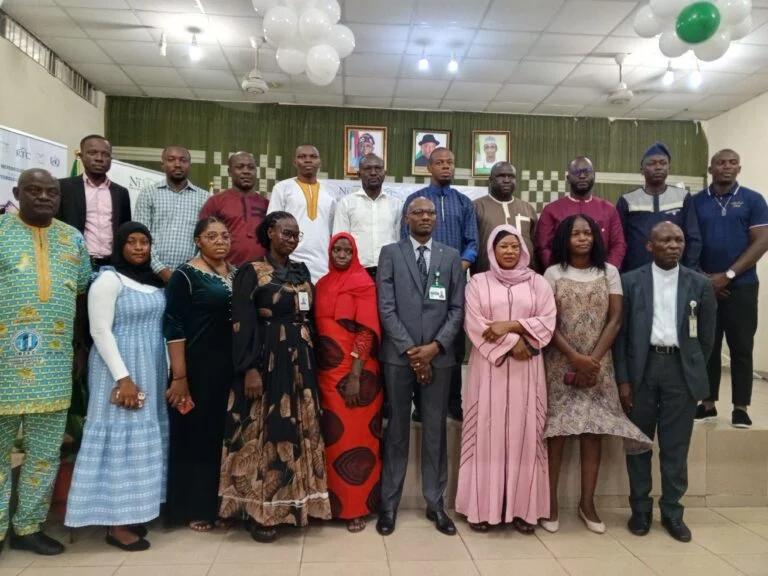
The Nigerian Meteorological Agency (NiMet) in collaboration with World Meteorological Organisation (WMO) on Monday began a two weeks training for 17 participants from 16 African countries on the Early Warning System.
The countries are Cameroon, Ghana, Niger, Gabon, Benin Republic, Burkina Faso, Central Africa Republic, Congo, Côte d’Ivoire, Guinea Bissau, Senegal, The Gambia, Liberia, Mali, Sierra Leone and Togo.
The training, being held at NiMet Regional Headquarters, Oshodi, Lagos, is expected to run till Dec. 22 and has the theme: “Early Warnings for All”.
Prof. Mansur Matazu, the NiMet Acting Director-General/Chief Executive Officer (DG/CEO) while declaring the workshop open said the event targeted meteorologists and climate scientists across the subregion.
He said the training would ensure collaboration for measuring, reporting, predicting, and monitoring impending extreme weather conditions.
Matazu, who is also the Permanent Representative of Nigeria with the WMO, said nations need to collaborate to proactively combat climate change’s negative impacts by providing actionable services.
He said the workshop would help participants to develope capacity to predict and respond to weather-related hazards and empower them on implementation of early warning systems.
He said it was an opportunity given to Nigeria to empower the other African countries through the training and help them to do better.
Matazu, represented by the Director, Weather Forecasting Services, Mr Daniel Okafor, said extreme weather and climate events globally often resulted in incidents leading to huge destruction of property and loss of lives.
He said the United Nations (UN) recognised WMO’s contributions and was spearheading Early Warning Systems by the year 2027, hence, the Early Warning for All (EW4ALL) initiative.
The WMO is the recognised Regional Institution for capacity building, particularly in the West African Sub-region.
He said weather has no boundary, hence the need for global collaboration to ensure proactive steps against negative impacts of changing climate
He said the two weeks event would give participants the opportunity to engage with experts in various aspects of the weather and climate value chain, share best practices, and explore innovative methods.
“These efforts aim to enhance our capacity to predict and respond to weather-related hazards. The workshop seeks to comprehend the complexities of weather prediction and develop systems that are accessible, adaptable, and responsive to the diverse needs of our communities.
“The ultimate goal is to empower participants to go back home and implement early warning systems that are robust, inclusive, and leave no one behind.






